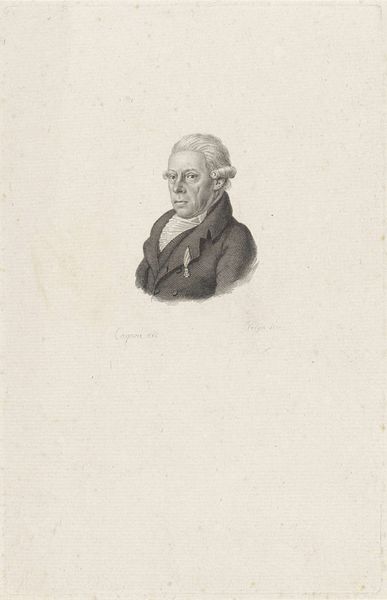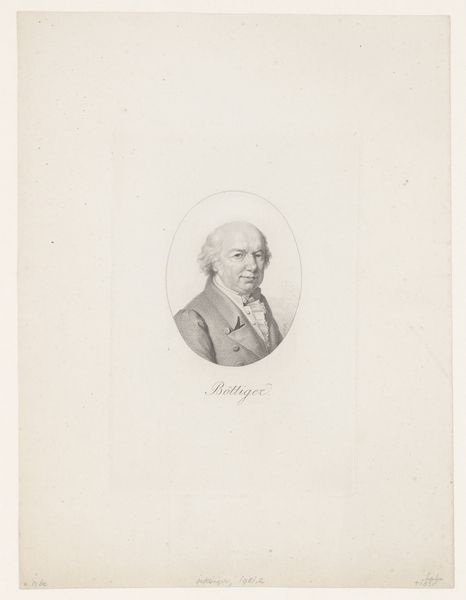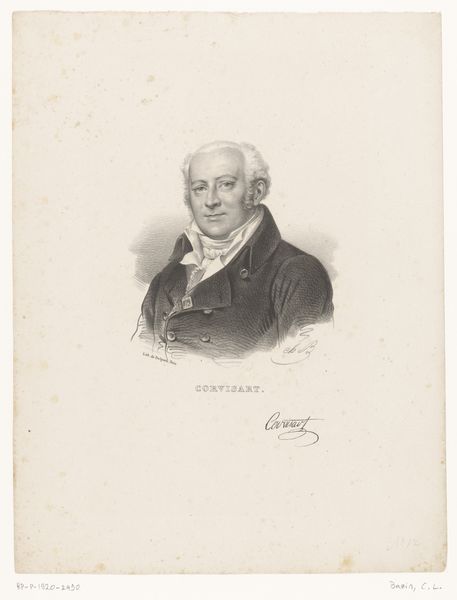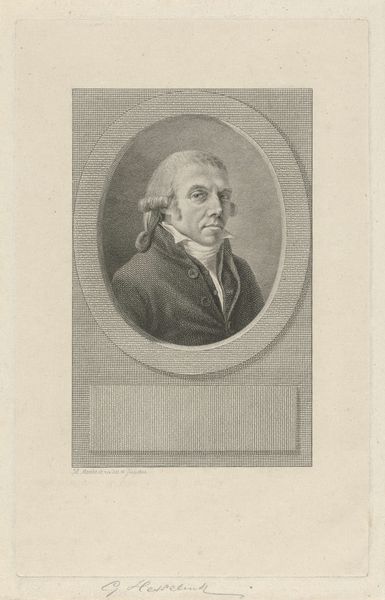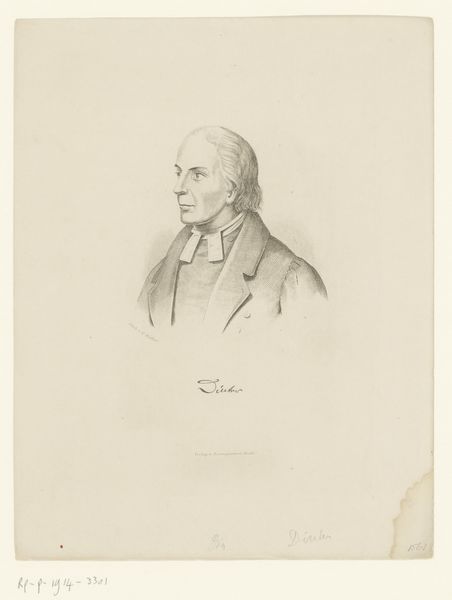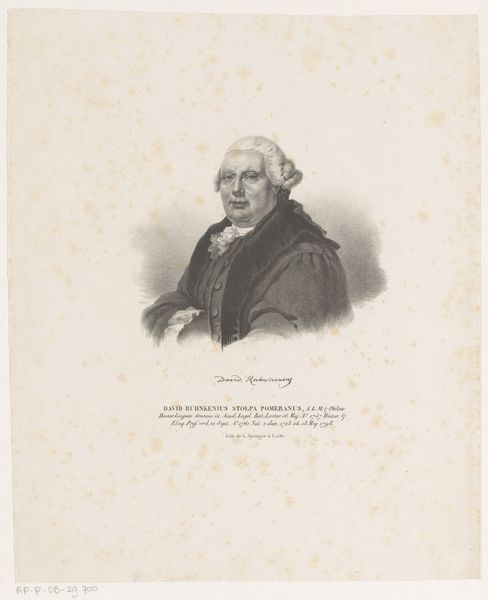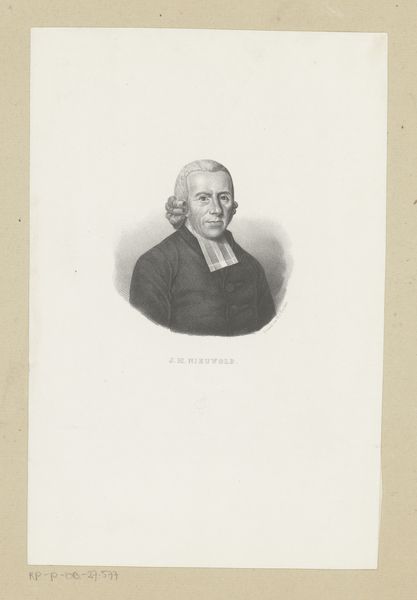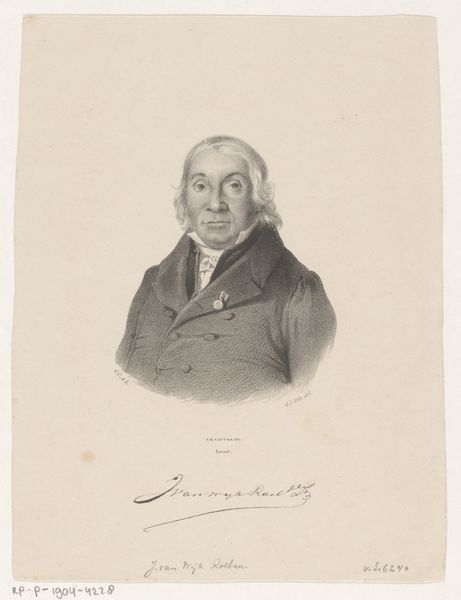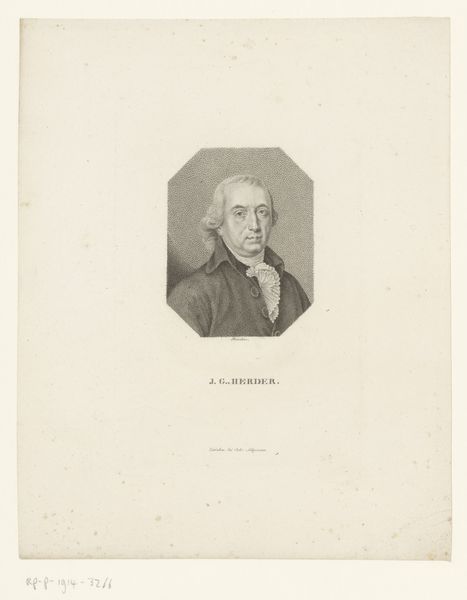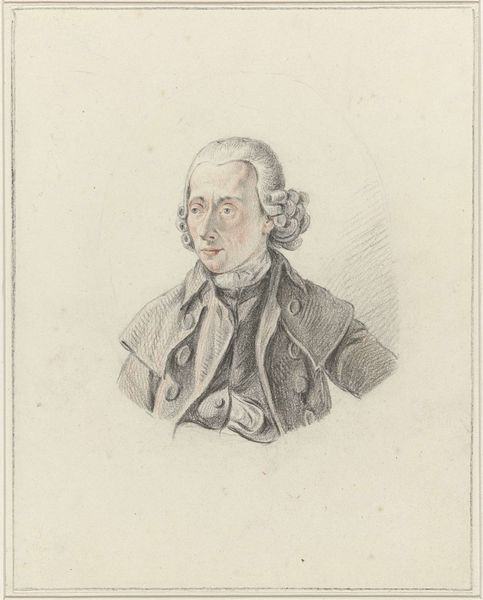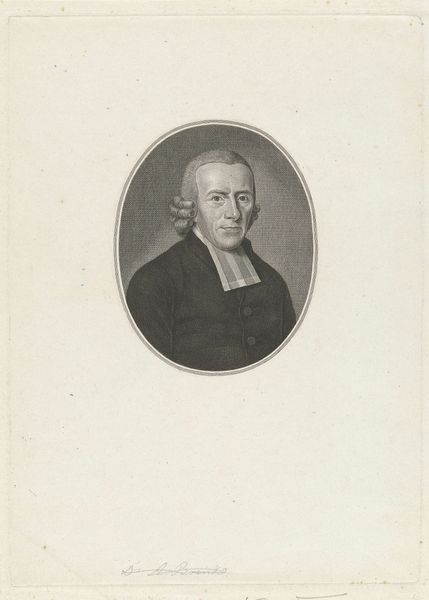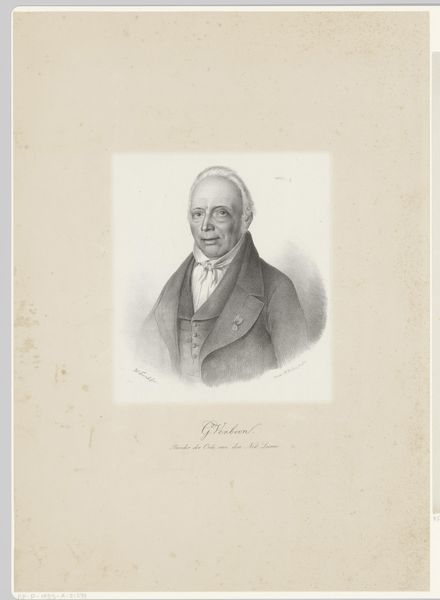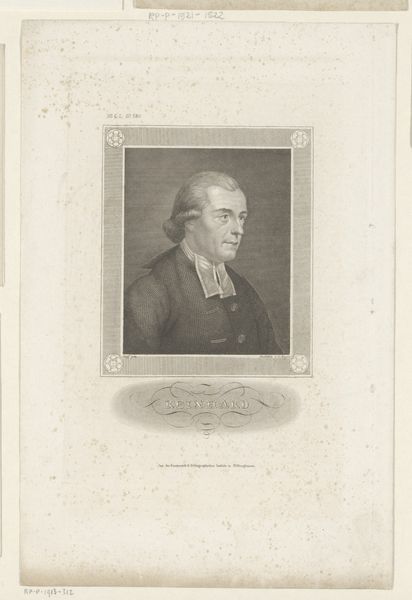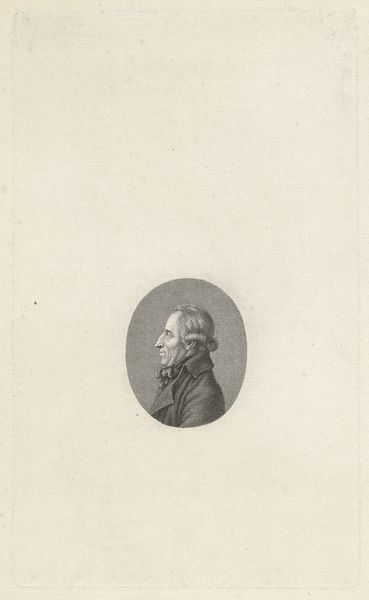
print, engraving
#
portrait
# print
#
old engraving style
#
pencil drawing
#
academic-art
#
engraving
#
realism
Dimensions: height 144 mm, width 104 mm
Copyright: Rijks Museum: Open Domain
Editor: This is Jacob Ernst Marcus's "Portret van Rhijnvis Feith," created sometime between 1818 and 1826. It's an engraving, and it has this really serious, almost severe mood. I'm curious, what symbolic significance might be embedded within such a formal portrait like this? Curator: Well, let’s consider what we see. We have Feith, a prominent figure, presented with a distinct gravity. The cross he wears speaks volumes. Does it suggest a personal faith, or perhaps something more… a symbol of status intrinsically linked to societal expectations and values of that period? Editor: It feels very deliberate. Was there a specific message the artist intended to convey to his contemporary audience through these symbols? Curator: Precisely. Remember, images like this were not just likenesses; they constructed identities. The formal attire, the meticulously rendered features… They are visual cues intended to project a certain image. What qualities were considered important for someone like Feith to project? Authority? Piety? Editor: Probably both. It's fascinating how much cultural information is packed into this single image. Curator: Exactly! Engravings like these acted as cultural memory keepers, repeating specific formulas for projecting an individual into the collective consciousness. Studying them provides fascinating insight into social values and personal identity of the time. Editor: I'll definitely be looking at portraits with a more critical eye now. Curator: Good. I find the study of symbols across periods and contexts to be the most exciting thing about Art History.
Comments
No comments
Be the first to comment and join the conversation on the ultimate creative platform.
